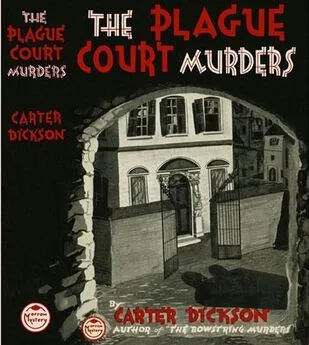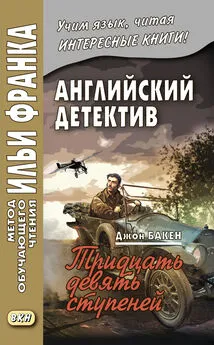John Blaine - The Boy Scouts In Russia
- Название:The Boy Scouts In Russia
- Автор:
- Жанр:
- Издательство:неизвестно
- Год:неизвестен
- ISBN:нет данных
- Рейтинг:
- Избранное:Добавить в избранное
-
Отзывы:
-
Ваша оценка:
John Blaine - The Boy Scouts In Russia краткое содержание
The Boy Scouts In Russia - читать онлайн бесплатно полную версию (весь текст целиком)
Интервал:
Закладка:
That came about even sooner than he had thought possible. He stopped, panting. The Uhlans were close on his trail by this time, and he heard them coming up. But then came a sudden shouting of orders, and, a moment later, a furious fusillade that was answered from the Russian side. Over the rattle of the firing, too, came a sound he remembered well, though he had heard it only once before-the yelling of charging Cossacks. For the second time the wild Russian horsemen had come to his rescue in the nick of time!
But this time there was more of a fight, since the two little bodies of horsemen were far more evenly matched than had been the case when General Suvaroff had led his daring raid behind the German lines in the effort to capture von Hindenburg. For five minutes the fighting was fast and furious. Fred could hear the clash of steel against steel and the spiteful spitting of revolvers and automatic pistols. Then the wild Russian shout of victory arose, and he heard sounds of galloping fast dying away. Even though he could see nothing, he knew which side had won.
"Thank Heaven!" he said to himself. "I wonder if they couldn't chase them and raid the culvert. There aren't so many troops there! Then we could surely get Boris away from them."
But the first thing to do, of course, was to come out of his cover and make himself known to his rescuers. There was a certain risk in even that simple procedure, and Fred was not so carried away by the excitement of the fight as to forget it. There was more than a chance that if he broke out, the Russians would mistake him for some German who had tried to escape by taking refuge in the brush, and that they would shoot without waiting to make sure. But he had to take the chance, and he minimized the risk as much as he could by tying his white handkerchief to a stick and carrying it before him as he pushed his way into the ditch.
He waved this as he emerged. At first no one saw him. Then a Cossack spied him and sent his horse straight at him. Fred leaped aside as he saw that the man meant to ride him down, and, shouting, waved his white flag. He dodged the first assault, but the Cossack spun his pony around in little more than his own length, and waving his dangerous lance, came at him again. He shouted again, and waved his white flag harder than ever. That would not have saved him, however, but just as the Cossack lunged and Fred threw himself down, sure that he would either be speared or trampled by the horse, an officer dashed up and struck up the lance with his sword.
"Don't you see the white flag?" he roared. "We do not kill men who surrender!"
"They say that the Germans are hanging every Cossack they capture," said the man, sullenly.
"Never mind what they say!" said the officer. "Hello! That man is not a soldier at all!"
"Neither soldier nor German!" cried Fred in Russian, springing up. "Those Uhlans were chasing me! I have just escaped from the German lines. I did not think that I should fare as badly among my friends as among the enemy!"
"Nor shall you, friend!" said the Russian officer with a laugh. "So you are a Russian? Well, you look as if you might be anything!"
"I'm afraid I do," said Fred, a bit ruefully. He could imagine, even though he could not see himself, that the Russian was quite right. He was caked with dirt. In the fall from the automobile, as he had discovered while he was walking away from the wreck, he had sustained a nasty cut over the eye, which, though it was not painful, had bled a good deal. And this had made his appearance even worse than it had been before. His clothes were torn, too.
"Who are you, and where do you come from?" asked the Russian.
In a few words Fred told his story. When he said that he had left Boris Suvaroff a prisoner at the culvert, with a broken leg, the officer started.
"Can't you go after him?" Fred pleaded. "They have very few men there. You could sweep them away."
"Not with this force. And I should not dare to go so far without special orders," said the officer. "We could not charge the culvert, and, approaching it from this side, we should have to ride uphill. But I am sure that when those in command know your story, a force will be sent to rescue Prince Boris. Come with us now. I will get you a horse if you are able to ride. The Uhlans left some behind!"
Fred could ride, and said so. And in a few minutes he was riding toward the fires that twinkled before them, side by side with the Russian officer, who was anxious to know all that Fred could tell him.
"That was splendid!" he cried enthusiastically when he heard how Fred had discovered the real purpose of the Germans by his ruse in pretending to be deaf and dumb. "And it means, too, that we will get some real work to do here in this quarter. I thought at first that the army in the north would get all the fighting. We have been sitting here for nearly a week, doing nothing. This is the first skirmish we have had, for our orders are not to bring on an action, but only to prevent the enemy from coming toward us if they show any sign of attacking."
"If what I have heard is true, there will be an advance from this quarter soon," said Fred. "If the Germans are to be outflanked, it must be by the troops here. And that ought to mean as much fighting as anyone could hope to get."
"That is what we are looking for," said the officer. "But you-you will be glad of a rest for a time, I should think!"
"I want to get my cousin back," said Fred. "It was hard to leave him."
"It was the only thing to do. You saved his life as well as your own by going. And one who saves a Suvaroff does a fine thing for Russia in these days-if this Boris is like the rest of the breed."
"Oh, we have never known!" said Fred, suddenly remembering. "Did General Suvaroff get back safely after he failed to catch General von Hindenburg?"
"He did! He had less than a thousand men, and he rode for sixty miles or more through a whole German army! He was intercepted but when he found a German brigade lined up in his path, instead of trying to circle around it, and so giving the Germans time to surround him, he cut right through it!" answered the officer, smiling.
"That was splendid!"
"I don't think the war will show anything better!" said the Russian, with enthusiasm. "He charged before the Germans knew that he was fairly upon them, and the whole fight lasted less than ten minutes. Then our fellows were through and riding for our lines. And the best of it was that not more than fifty of our saddles were emptied. The Germans are wonderful fighters, I believe. We shall have a hard time beating them. But they fight too much by rule. A German cavalry commander would have been brave enough to try to do that, but he would not have tried because he would have known that it was an unsound plan."
"I wish Boris knew that his father was safe," said Fred, a little sadly. "He has been worried, although he has said nothing."
"Eh-he might have known it! Yes, he got back safely enough. As to whether he is safe now, that is another matter. He is in the thick of the fighting around Gumbinnen, and he is not one of those generals who stay in the rear. He is like Skobeleff. Have you heard of him?"
"He commanded at Plevna, against the Turks?"
"And in a good many other battles! Skobeleff, though he was in command of the whole army, would insist always on being in the thick of the fighting himself. He wore his white coat, and he rode a white horse. So he was always to be seen by his own men and by the enemy. Perhaps he was wrong, but soldiers will fight better for a general who shares their perils. Skobeleff used to do impossible things, because he believed that nothing was impossible that brave men made up their minds to do."
Fred thought of Russian generals in the war with Japan who might have changed the whole course of that conflict had they had such ideas. But he said nothing of this. Russian soldiers were mindful of that disastrous war, he thought. And Fred had an idea that before this far greater struggle was over, the world would have been forced to forget the failures of Manchuria. Men who fought as he had seen Russians do were not going to be beaten again.
Fred was mounted now on a big, rawboned horse that had lost its Uhlan rider. He was so tired that he was swaying in his saddle, and the Russian noticed this.
"Keep awake a little longer," he said, cheerily. "We haven't very much further to go. In half an hour, I think, you can be in a real bed, with sheets and blankets."
"I don't need anything like that," said Fred, rousing himself and smiling. "I think I could sleep on a board that was studded with nails! And I know that they could fight a battle all around me to-night without waking me up when I once get to sleep."
"I'd like to let you stop here-we are within our lines now-but I know the staff will want to see you and ask a few questions. And you have done so much already for Russia that I believe you will want to do that much more before you rest."
"Oh, a few minutes more or less won't make any difference!" said Fred. He yawned hugely. "As long as I'm awake, I can make myself stay awake. If I once let go, though, I promise you I'll be hard to rouse!"
There were more Russians about here than Fred had supposed. It was plain that since Ivan had had any information as to the conditions here, re-enforcements had been brought up, for it was not through outposts that they were riding, but through a large body of troops. Tents stretched in all directions and fires were numerous, dotting the fields like stars. There were no woods here; it was open country again. To the left Fred caught a glimpse of the silver sheen of a river reflecting the starlight.
"How far are you going to take me?" asked Fred.
"To headquarters. We have less than half a mile to ride now. The general will be glad to see you."
The Russian chuckled, and there seemed to be a hidden meaning in his laugh. At any other time, when he was less weary, Fred would have noticed that. He would have wondered at it, at least; he might even have guessed its meaning. But now he only asked, quite idly: "Who is in command of the troops here?"
"You will soon know," said the Russian, repeating his chuckle.
Fred did, indeed, soon get the answer to his question. They rode up to a small farmhouse, ablaze with light, late as it was. The place was well guarded. The Russian officer slipped off his horse.
"Wait one minute," he said. He went, and returned at once. Then he led the way inside. And Fred, all weariness banished by the sight, stared into the cold, evil eyes of Mikail Suvaroff, wearing his general's uniform. CHAPTER XVIII
THE GREAT WHITE CZAR
There was a moment of absolute, chilling silence; the sort of silence that, in the old phrase, can be felt. For just an instant it was plain that Mikail Suvaroff did not recognize the nephew he hated. But then he knew him, and a flash of cold, malignant hatred lit up his eyes, while his lips curved in a curious, sneering smile.
"So-it is you?" he said. "I thought I had not seen the last of you on the platform at Virballen! Lieutenant, you may leave us."
"Yes, general," said the lieutenant who had rescued Fred. He was plainly puzzled and confused. "I did not tell your kinsman that you were in command here. I thought he would be delightfully surprised by being confronted with you suddenly. But-"
"Exactly! You were quite right, lieutenant. And now you may leave us!"
The lieutenant flushed at the rebuke, saluted stiffly, and left the room.
Fred was alone with his uncle.
"You are brave, at least," said Mikail, presently. "That will, perhaps, be a comfort to you later. Yet you were not well advised to serve the Germans as a spy. They have not been able to save you from me this time, you see. It is not a case this time of the station at Virballen, with the superiority of numbers on their side for the moment."
Читать дальшеИнтервал:
Закладка:










